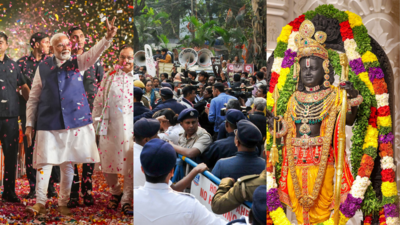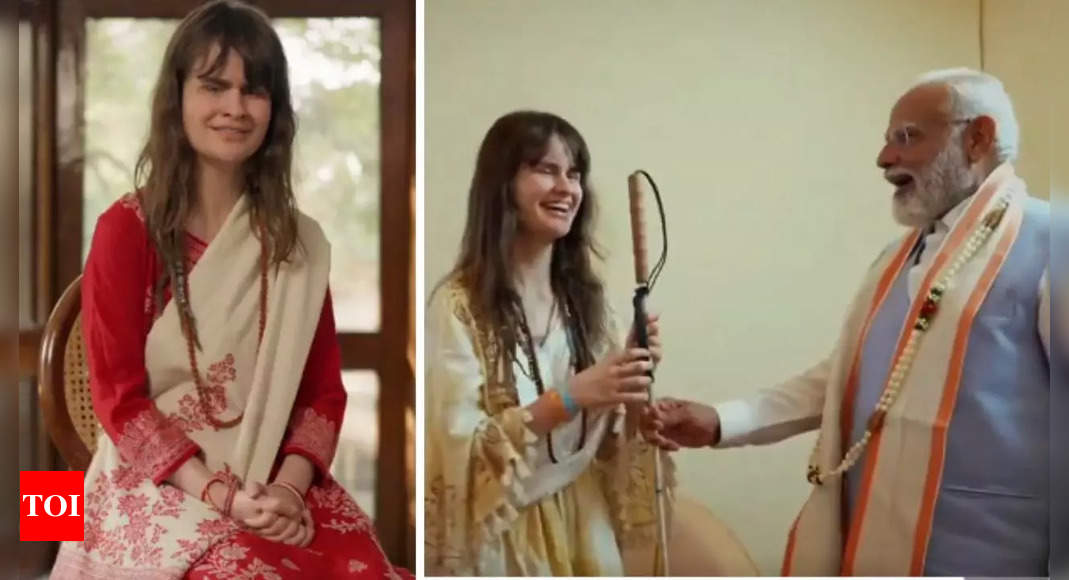As 2024 drew to a close, India experienced numerous significant developments that shaped the nation’s trajectory. The year began with the consecration of the Ram Mandir in Ayodhya – the event, attended by thousands and watched by millions across the nation.
The political arena buzzed with unprecedented energy as the nation exercised its its greatest democratic right – the Lok Sabha elections.State assemblies too witnessed fierce electoral battles, reshaping regional political landscapes.
On the diplomatic front, India navigated through turbulent waters. The diplomatic frost with Canada cast long shadows over international relations, while a breakthrough in the long-standing border tensions with China offered a glimpse of diplomatic finesse.
The political sphere remained active with notable arrests and subsequent releases of key political figures sparking intense public discourse.
The nation also experienced profound losses with the passing of distinguished personalities who had significantly influenced Indian society, creating a year characterised by both achievements and solemnity.
The persistent crisis in Manipur continued to test the fabric of national unity, while the tragic RG Kar incident sent shockwaves across the nation raising important questions about medical infrastructure and protocols.
Here are the key events that left a mark this year.
Ram Mandir inauguration
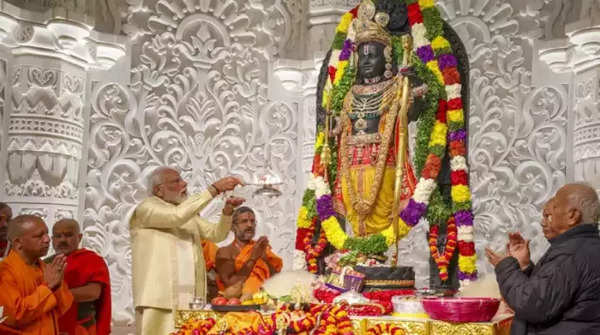
January 22, 2024, marked a historic moment in India’s cultural landscape as the Ram Mandir was inaugurated in Ayodhya, Uttar Pradesh. Prime Minister Narendra Modi led the consecration ceremony, declaring emotionally, “Aaj hamaare Ram aa gaye. He will no longer stay in a tent. He will now reside in a grand temple.”
The once-modest town of Ayodhya transformed into a hub of grandeur, witnessing an unprecedented gathering of India’s most prominent personalities. The event drew thousands of devotees to the temple premises, while millions more participated virtually through various media platforms worldwide.
The city’s skyline was adorned with Indian Air Force helicopters showering rose petals, while over 100 private jets brought dignitaries to the ceremony.
Members of the film industry were there in force, as was India Inc and some of India’s finest sporting stars. Amitabh Bachchan to Rajinikanth, Mukesh Ambani to Laxmi Mittal, Katrina Kaif to Kangana Ranaut, Sachin Tendulkar to Saina Nehwal — they all came to what just a few years back was a dusty town in UP.
Lok Sabha election
The Lok Sabha election, India’s mammoth democratic exercise, set the tone for a year marked by significant political shifts. The BJP, which had dominated national politics since 2014, fell short of a majority, securing only 240 seats – well below the required 272. This unexpected outcome reshaped the power dynamics within the National Democratic Alliance (NDA).
Former BJP allies, Nitish Kumar’s JD(U) and Chandrababu Naidu’s TDP, suddenly emerged as crucial coalition partners. The results also breathed new life into the opposition INDIA bloc, which had fallen short of making a significant presence felt until now. The absence of a single-party majority in Parliament not only altered political equations but also raised serious questions about the accuracy of exit polls and pollsters’ credibility.
State assembly elections
2024 witnessed significant shifts in India’s state political landscape, with assembly elections held in eight states marking several historic moments.
Haryana made history as BJP secured its third consecutive term, winning 48 out of 90 seats – a first-time achievement by any party in the state. In Maharashtra, BJP dominated with 130+ seats, while the Mahayuti alliance secured a commanding victory with 225 seats, far exceeding the required majority of 145.
Jharkhand’s JMM-led alliance, under Hemant Soren, retained power by winning 56 seats in the 81-member assembly, decisively defeating the BJP-NDA coalition which managed only 24 seats. Kashmir held its first assembly polls since the abrogation of Article 370, while Odisha witnessed a major shift with BJD’s defeat after 24 years in power.
These results marked a significant contrast to the 2024 Lok Sabha elections, particularly for the BJP, highlighting the distinct dynamics between state and national politics.
India-Canada row
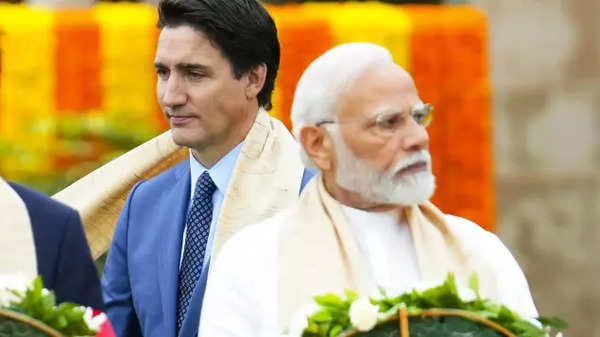
The India-Canada diplomatic relationship hit a severe crisis when Canadian Prime Minister Justin Trudeau accused Indian officials of involvement in the murder of Hardeep Singh Nijjar, a Khalistani separatist designated as a terrorist by India.
The allegations triggered a diplomatic firestorm, leading to mutual expulsion of diplomats, including India’s recall of high commissioner Sanjay Verma, and suspension of visa services. The situation worsened in November when pro-Khalistani supporters allegedly attacked Indian consular event attendees at a Toronto Hindu temple, prompting India to criticize Canada’s failure to protect Indian citizens and institutions.
Throughout the winter parliamentary session, India maintained that Trudeau’s accusations were unfounded, emphasizing that Canada had failed to provide any supporting evidence for their claims. The diplomatic standoff has severely impacted bilateral relations, including trade discussions, marking one of the lowest points in India-Canada relations.
India-China military standoff
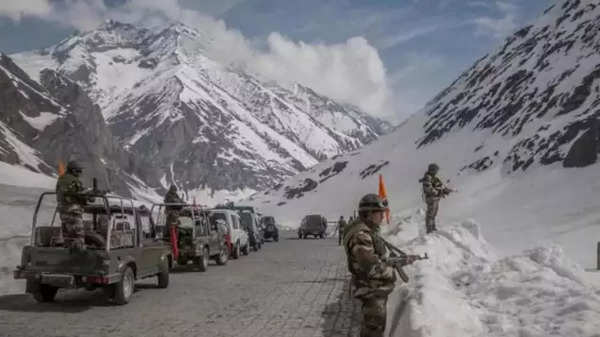
The 54-month military standoff between India and China in eastern Ladakh finally came to an end in October, marking a significant diplomatic breakthrough. Both nations agreed to restore the pre-2020 patrolling patterns along the Line of Actual Control (LAC), effectively normalizing border operations. The resolution extended beyond military disengagement, as both countries took steps to strengthen bilateral relations through initiatives like resuming the Kailash Mansarovar Yatra and establishing protocols for sharing trans-border river data.
Manipur crisis
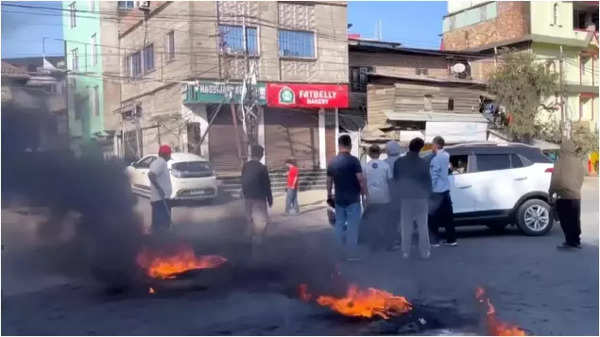
The once-peaceful state of Manipur witnessed unprecedented ethnic violence throughout 2023-24, primarily between the valley-dwelling Meiteis and the hill-based Kuki-Zo communities. What began in May 2023 escalated into a full-blown crisis, claiming over 250 lives and displacing thousands.
The conflict, marked by mob attacks, drone strikes on civilian areas, and widespread destruction, has shattered the state’s long-standing cultural harmony.
Despite the Lok Sabha elections being conducted in April amid these tensions, the situation remains volatile with no immediate resolution in sight. The deepening divide between these communities has transformed Manipur into a state where fear and uncertainty prevail, with both sides entrenched in their positions and peace remaining elusive.
Chief ministers jailed and released
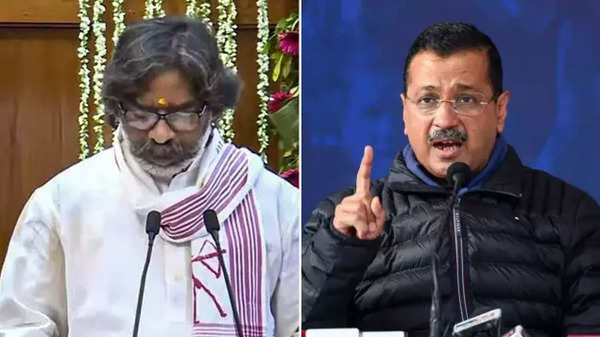
In 2024, two prominent chief ministers faced legal troubles and imprisonment. Jharkhand chief minister Hemant Soren was arrested by the ED on January 31 in a money laundering case linked to an alleged land scam, where he was accused of fraudulently acquiring 8.5 acres of land, with Rs 36 lakh in cash and related documents recovered. After spending nearly five months in jail, Soren was granted bail by the high court on June 28.
Similarly, Delhi CM Arvind Kejriwal was arrested by the ED on March 21 in connection with the Delhi excise policy case, followed by a CBI arrest on June 26 while in ED custody. Kejriwal’s legal ordeal ended when the Supreme Court granted him bail on September 13.
RG Kar incident
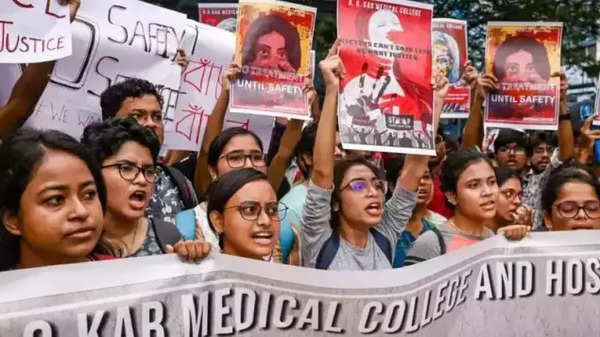
A devastating incident involving the sexual assault and killing of a resident doctor at RG Kar Medical College and Hospital in Kolkata sparked nationwide outrage.
The tragic event prompted medical professionals across India to stage demonstrations and work stoppages, which subsequently disrupted healthcare services throughout the country.
The incident brought critical attention to the pressing concerns regarding the security of female medical practitioners and healthcare workers in India’s medical institutions, leading to widespread demands for enhanced safety measures and swift legal action against the perpetrators.
Prominent personalities who died
In 2024, India bid farewell to several luminaries who left an indelible mark on the nation’s cultural, economic, and political landscape. The country mourned the loss of industrial titan Ratan Tata, tabla virtuoso Ustad Zakir Hussain and ghazal singer Pankaj Udhas. The political sphere witnessed the passing of former Prime Minister Manmohan Singh, who served as India’s economist-turned-premier and was the architect of India’s economic liberalization.

